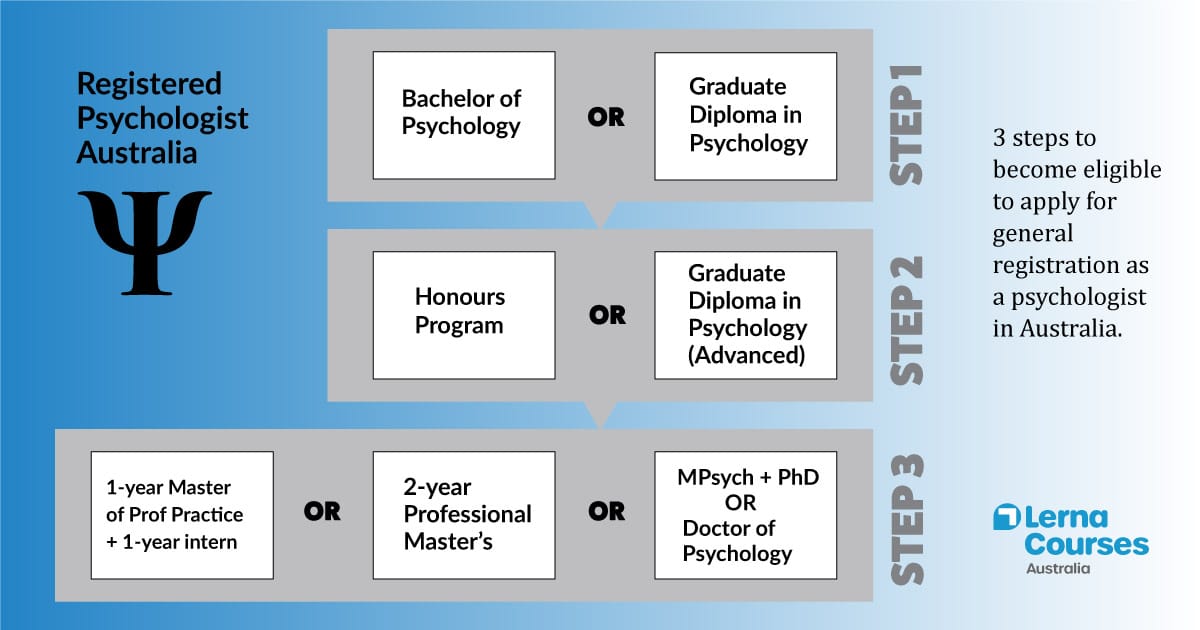Psychologists are mental health professionals who study human behaviour and the mind. In all kinds of ways, they work with people to promote well-being.

Psychologists help individuals, families, and communities overcome mental health challenges and achieve optimal wellbeing. But what exactly do psychologists do, and how do they differ from therapists and other professionals?
Let's explore the daily activities of psychologists in Australia, as well as their main role and key responsibilities. We'll examine different types of careers and areas of expertise. Along the way, we'll provide insight what makes this line of work unique, interesting and rewarding.
Table Of Contents
Main Role of a Psychologist

The main job of a psychologist is to provide individual assessment and therapy. In this role, psychologists talk with clients or patients to learn about their needs. They also explore treatment options, and may administer forms of talk therapy.
When you think of what psychologists do on a daily basis, you may have the mental images of them doing assessment and therapy. Let's explore this further. But bear in mind that some psychologists do other jobs that are very different, such as research or developing community policies.
Example: Your patient has anxiety issues
Suppose a woman is referred to you by her GP for anxiety issues related to work. The first step for you as a psychologist is to conduct an initial assessment. You'll gather information about her symptoms, work-related stressors, medical history, and other relevant details.
Based on your assessment, you may determine if medication is necessary and refer her to a psychiatrist who can prescribe medication.
If you accept the patient as an ongoing client, you will make follow-up appointments to provide treatment and monitor her progress. You may provide personal therapy using evidence-based approaches, such as cognitive-behavioural therapy or mindfulness techniques, to teach coping skills.
You may also collaborate with other professionals involved in the client's care, such as the prescribing psychiatrist or her medical doctor. In this case, with the patient's permission, you could consult with the HR manager at her place of employment. The goal is simply to improve her well-being and life quality.
Other Roles Psychologists Perform

While assessment and therapy are important aspects of their work, psychologists have a range of other jobs in research, teaching, community work, staff development, and more.
Each of these positions requires specific skills, and you may choose to specialise in one or more areas. Let's explore some of the other roles a psychologist may perform.
In community development, you create and implement programs aimed at improving mental health and wellbeing. For example, you may work with schools to develop anti-bullying programs. Another example is to liaise with community organisations to provide support services to people affected by trauma or disadvantage. You may also conduct outreach programs to educate the public about mental health issues.
Psychologists help design and implement programs to improve employee wellbeing and job satisfaction. They may also deliver education and training on topics such as diversity and inclusion, leadership development, and conflict resolution. Organisational psychologists are often employed by HR departments or consulting agencies, and commonly work in industries such as healthcare, education and business.
Researchers conduct studies to better understand human behaviour and mental processes. As a research psychologist, you could work in academic or applied settings, such as universities, research institutions, or government agencies. You may design and conduct studies, analyse data, and publish research findings in scientific journals.
In university settings, psychologists both conduct research and instruct psychology students. They also mentor students, supervise research projects, and participate in research collaborations with other faculty members.
In legal settings, often involving prisons or courts, forensic psychologists evaluate and provide treatment to individuals who have committed crimes or are involved in legal proceedings. They may also provide expert testimony in court cases related to mental health or behaviour.
Psychologists can also work in school settings, where they promote health and academic success for students. School psychologists work with students, teachers, parents, and administrators to identify and address students' academic, behavioural, and emotional needs.
Four Key Things Psychologists Do

If you wanted to sum up what a psychologist does in terms of four defining activities, they are: (1) psychological assessment and testing, (2) diagnosing and developing treatment plans, (3) providing individual patient therapy, and (4) conducting psychological research. These are all core elements of clinical psychology training.
While only a minority of psychologists focus solely on research, all psychology professionals are expected to use research to inform their practice. The other three elements could be considered the three fundamental steps in clinical practice. They're the main duties of a practising psychologist.
For their work, psychologists are fairly well remunerated in Australia. The average psychologist salary is $102,039 (base pay) according to Indeed. In terms of what they earn per hour, that corresponds with $52.15 an hour.
1. Assessment and psychological testing
We think of psychologists as people who assess individual patients by talking to them and learning about their experiences, emotions and problems. But assessment is an activity that every psychologist does on some level, even if they aren't a clinical practitioner.
Psychological testing is part of the assessment process for most psychology professionals. Clinical psychologists, researchers and organisational psychologists, for example, all measure and evaluate individual mental functioning. Tests can provide insight into a person's abilities, personality traits, and health status.
- Organisations may use psychological testing as part of their employee selection process, trying to weed out people unsuited to a role. It can also be used to assess employee well-being, motivation, and job satisfaction.
- Patients, such as children with special learning needs or adults with declining memory, are tested as well. The results help to better understand their needs and develop effective interventions.
- Family psychologists provide professional opinions to the courts on parenting matters. They may use psychological testing to assess the mental health and well-being of parents and children involved in these cases.
Some of the more popular psychological tests are the Beck Depression Inventory (BDI), Minnesota Multiphasic Personality Inventory (MMPI), Myers-Briggs Type Indicator (MBTI), Rorschach Inkblot Test, Stanford-Binet Intelligence Scale, and Thematic Apperception Test (TAT).
2. Diagnose and make a treatment plan
Psychologists in Australia may diagnose mental health conditions and develop treatment plans based on their findings.
Standardised diagnostic tools and criteria are available to help guide the diagnosis, such as the Diagnostic and Statistical Manual of Mental Disorders (DSM). Treatment plans may also be made without a formal diagnosis of a mental health condition.
The process of making a diagnosis is an important part of psychologist training, as it is a fundamental aspect of clinical practice. Psychology programs typically include courses on psychopathology and diagnosis, where students learn about different conditions and the diagnostic criteria used to identify them.
Treatment plans are tailored to the client's specific needs and goals. Evidence-based interventions may include psychotherapy, medication, or behavioural strategies. Other healthcare professionals may be involved, such as psychiatrists or general practitioners, to ensure clients receive integrated care.
3. Individual patient therapy
Therapy is an important service that psychologists are trained to perform. After the assessment stage, a psychologist will collaborate with the patient to develop a treatment plan. This plan will include the short and long-term goals of therapy and methods to be used. Some common techniques include:
- Cognitive-behavioural therapy (CBT): Identify and change negative thought patterns and behaviours.
- Psychodynamic therapy: Explore unconscious thoughts and emotions, and how they may be affecting behaviour and relationships. Specific methods include free association, dream analysis, and exploring past experiences.
- Interpersonal therapy (IPT): Improve the patient's interpersonal relationships, and address problems related to grief, role transitions, and interpersonal conflicts. IPT may involve role-playing, problem-solving, and communication skills training.
- Mindfulness-based therapy: Develop mindfulness skills, such as non-judgmental awareness and acceptance of the present moment. Techniques include meditation, breathing exercises, and body awareness.
In between therapy sessions, the therapist may assign homework or encourage the patient to practice new skills. For example, if the patient is learning CBT to manage anxiety, they may be asked to perform relaxation techniques, identify negative thoughts, or challenge negative self-talk.
While psychologists are highly trained therapists, they're not the only ones who can provide therapy of a psychological nature.
Therapist is a broad term that encompasses jobs performed by psychiatrists, registered nurses, social workers, occupational therapists, and counselors. See this list of mental health professionals who provide roles in treatment.
Other types of therapists in Australia are art therapists, music therapists, and dance therapists. They use creative arts therapies to help individuals improve their mental health and well-being.
Postgraduate courses in mental health are available so professionals from different backgrounds, such as nurses, can specialise in treating clients with mental illness or other psychological problems.
In Australia, the key difference between a counsellor and a psychologist is their level of training and the scope of their practice.
Counsellors have an accredited professional degree or graduate diploma in counselling, along with community experience. Counselling is usually less structured than formal therapy and may focus on specific issues like relationship problems, grief and loss, or stress management.
Here's a comparison table summarising the key differences.
| Counsellors | Psychologists | |
|---|---|---|
| Education | Usually a bachelor's degree in a related field such as psychology, plus a professional degree or graduate diploma in counselling | Minimum six years of training in psychology, including a Bachelor's and postgraduate degree in psychology |
| Practice | Short-term, solution-focused support for personal or emotional difficulties | Assessing, diagnosing, and treating mental health disorders using evidence-based interventions such as CBT, psychoanalytic therapy, and humanistic therapy |
| Focus | Specific issues such as relationship problems, grief and loss, and stress management | Wide range of mental health issues, including anxiety, depression, addiction, and trauma |
| Setting | Private practice, community health centres, and educational settings | Private practice, hospitals, schools, universities, and research institutions |
Psychiatrists are trained medical doctors who specialise in the treatment of mental illness. Unlike psychologists, they can prescribe medication and other medical treatments. They often work with clients who have more severe or complex mental health conditions.
If you have a mental health condition that requires medical treatment, like depression or schizophrenia, you would go to a psychiatrist. They have the medical training and expertise to provide that kind of care.
Comparison table
| Psychiatrists | Psychologists | |
|---|---|---|
| Education | Medical degree, followed by specialist training in psychiatry | Psychology degree, followed by clinical training and postgraduate study |
| Medical Treatment | Can prescribe medication and provide medical treatments for mental health conditions | Cannot prescribe medication |
| Focus of Treatment | Biological aspects of mental health conditions, medical treatments, medication | Psychological and social factors contributing to mental health conditions, therapy, coping skills |
| Referral Process | Referral from medical doctor required | Can be seen without referral |
Note: These are general differences for Australia.
While psychologists and psychiatrists both work in mental health, they have different areas of expertise and treatment approaches. Psychologists focus on therapy and addressing psychological and social factors. In contrast, psychiatrists focus on medical treatments and addressing biological factors.
4. Conduct research and contribute to the field
The fourth main thing that psychologists do is conduct research, which is a crucial aspect of this scientific field. Research drives clinical practice and enhances our comprehension of human behaviour and mental processes.
Psychologists examine subjects such as cognitive processes, social behaviour, personality, developmental psychology, and neuropsychology. They collect data using methods such as experiments, surveys, observations, and interviews.
One of the key objectives of psychological research is to design and evaluate treatments. For example, researchers may investigate the effectiveness of a specific psychotherapy approach for treating depression, or examine how well a community-based program reduces anxiety in children.
Psychological research is typically carried out in academic or research settings, such as universities or research institutions. Researchers may also work in government or industry positions, where they apply their skills to inform policy or develop new products.
How to Become a Psychologist

To become a psychologist in Australia, you need to first complete an education and training sequence that takes at least six years. Become a psychologist is very hard, especially with competition for postgraduate places and the need for honours-level grades.
Step 1 is to obtain a Bachelor of Psychology (or Bachelor of Psychological Science), which takes 3 years. However, if you already hold a (non-psychology) bachelor degree, you can instead study for a Graduate Diploma in Psychology (equivalent to a Bachelor's degree).
Step 2 is to complete a psychology honours year. The alternative is a Graduate Diploma in Psychology (Advanced), which is equivalent to an honours year. The fourth year is a vital towards becoming a psychologist. Two years still to go.
Step 3 is to choose one of two pathways, the Higher Degree pathway or the 5+1 Internship Pathway. Either option completes the six-year sequence. Enroll in the postgraduate program of your choice for the pathway and apply for provisional registration.
For the higher degree option, you complete an Australian Psychology Accreditation Council (APAC) accredited postgraduate degree such as a 2-year Master's or a Doctorate. This could be in one of the nine approved areas of practice endorsement. Programs include coursework, placements and a thesis.
For the 5+1 internship pathway, you'll need to complete a one-year Master of Professional Psychology, gain provisional registration with the Psychology Board of Australia (PsyBA), undertake a PsyBA-regulated one-year internship of supervised practice, and successfully complete the National Psychology Exam.
Following the higher degree or internship, you can apply for general registration as a psychologist.
Job Duties by Specialisation

What a psychologist does on a daily basis depends a great deal on their specialisation. The Psychology Board of Australia (PsyBA) has a list of nine areas in which a psychologist can obtain specialised training and recognition. Here's an outline of the goals and activities involved with each practice area.
- Clinical neuropsychology. Assess and treat patients with neurological disorders affecting cognitive and emotional functioning.
- Clinical psychology. Diagnose and treat mental illnesses and disorders.
- Community psychology. Improve the overall well-being of individuals in communities, addressing social issues and promoting social change.
- Counselling psychology. Help individuals deal with everyday issues, such as stress, relationships, and work-life balance.
- Educational and developmental psychology. Assess and treat learning difficulties, behavioural problems, and developmental disorders in children and adolescents.
- Forensic psychology. Apply psychological knowledge to legal and criminal justice contexts.
- Health psychology. Promote and maintain good health and well-being, and assist those with medical conditions to cope with their illness.
- Organisational psychology. Apply psychological principles to workplace settings, such as improving employee performance, team building, and management.
- Sport and exercise psychology. Help athletes and individuals improve their performance, motivation, and mental well-being in relation to sport and exercise.
As you can see from the list, the work often involves helping people who don't necessarily have psychiatric disorders. Psychologists are active where expertise on the mind and behaviour is either necessary or may improve human performance.